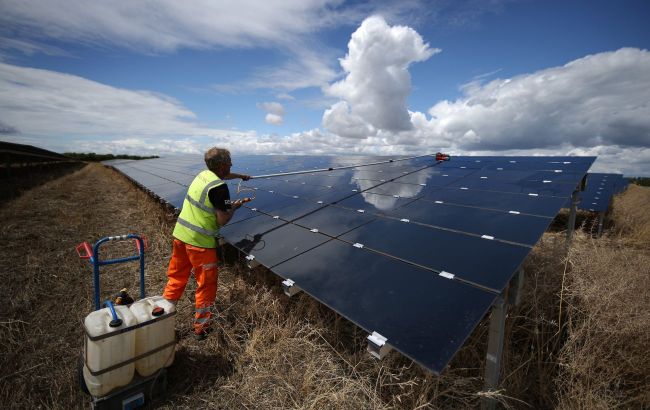'Solar strike': US imposes up to 3521% tariffs on Asian battery imports
 Photo: The US imposed tariffs of up to 3521% on imports of solar panels from Asia (Getty Images)
Photo: The US imposed tariffs of up to 3521% on imports of solar panels from Asia (Getty Images)
The United States has imposed new duties of up to 3521% on imports of solar panels from four Southeast Asian countries, Bloomberg reports.
The tariffs announced on April 21 are the culmination of a year-long trade investigation. It found that solar panel manufacturers in Cambodia, Vietnam, Malaysia, and Thailand unfairly benefited from government subsidies and sold exports to the United States at prices below production costs.
The investigation was initiated by US solar panel manufacturers and launched under former President Joe Biden.
According to the Ministry of Commerce, Cambodia's tariffs were set at 3521%, reflecting the country's decision to stop participating in the investigation.
Companies in Vietnam will receive tariffs of up to 395.9%, while in Thailand they are set at 375.2%. The rates for Malaysia were set at 34.4%. Higher duties have been set for certain companies.
Last year, the United States imported $12.9 billion worth of solar equipment from the four countries that will be subject to the new duties. This is about 77% of total module imports.
Benefit to US
While the tariffs are intended to benefit US manufacturers, they will also hurt US renewable energy developers who have long relied on low-cost foreign supplies. This has increased uncertainty for the sector, which is under the influence of political and policy changes in Washington.
These tariffs will be added to the new tariffs imposed by US President Donald Trump, which have upended global supply chains and markets. The anti-dumping and countervailing duties, as they are called, are intended to offset the cost of alleged unfair subsidies and pricing calculated by the Department of Commerce.
While the promise of subsidies and demand spurred by Biden's inflation-reducing law helped spark a wave of interest and investment in new solar panel plants across the US, manufacturers have warned that these plants are threatened by foreign competitors selling their equipment at below-market prices.
"This is a decisive victory for American manufacturing," said Tim Brightbill, co-chair of Wiley's international trade practice and lead attorney for the coalition of solar energy companies that brought the case.
The findings confirm "what we’ve long known: that Chinese-headquartered solar companies have been cheating the system, undercutting US companies and costing American workers their livelihoods," he said.
Impact on Asia
As the US decision was largely expected, companies have moved some production capacity to countries that do not impose tariffs, such as Indonesia and Laos.
"We don’t think the higher rates will have much financial impact especially post recent reciprocal tariffs," BofA Global Research said in a note.
According to Bloomberg, Indonesia is expected to have more than 20 gigawatts of foreign-owned solar power generation capacity by the middle of this year, up from 1 gigawatt at the end of 2022.
However, other countries, including India, Indonesia, and Laos, may be subject to possible new duties later this year.
After tariffs were imposed on solar panel imports from China about 12 years ago, Chinese manufacturers responded by locating operations in other countries that were not affected by the tariffs.
The US initiated the investigation following a petition from the American Solar Energy Trade Alliance, representing companies such as First Solar, Hanwha Q Cells, and Mission Solar Energy LLC.
US President Donald Trump imposed tariffs of 10% on all countries and higher tariffs on some countries, especially in Asia. Trump then suspended these tariffs for 90 days.

